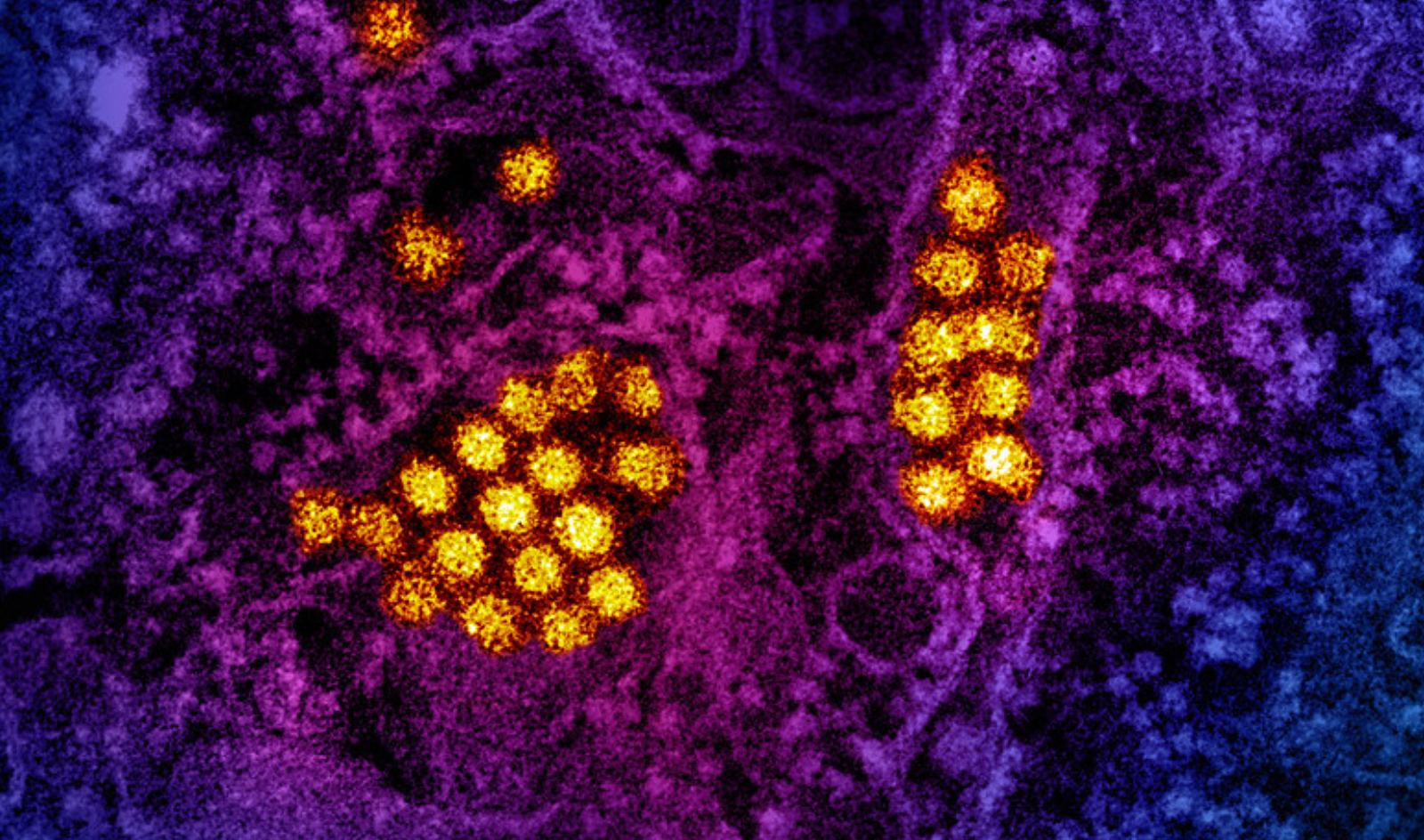ImmunoPrecise AI Discovers Pan-Serotype Dengue Vaccine Target Fully In Silico
ImmunoPrecise Antibodies Ltd. (IPA) reported an in silico discovery of a single, strictly conserved epitope across all four dengue virus serotypes using its LENSai platform and patented HYFT technology.
The epitope was identified through sequence-based HYFT pattern matching and validated structurally using over 20 million proprietary Structural HYFTs (S-HYFTs), enabling a conformational match without relying on experimental methods like crystallography or cryo-EM.
This target, unmutated across DENV-1 through DENV-4, could serve as the basis for a universal dengue vaccine. The result addresses a long-standing barrier in dengue vaccinology—lack of a common, exposed, and functionally relevant viral site across all serotypes. IPA’s approach allowed prediction of immunogenic structural features directly from viral sequence data, bypassing traditional trial-and-error techniques.

Transmission electron micrograph of dengue virus particles (gold). Micrograph courtesy of CDC; colorization and visual effects by NIAID. Credit: CDC and NIAID
HYFT (Hyper-Functional Token) technology is designed to capture biological patterns that link genetic sequences to structures, functions, and associated data like literature and clinical records. These patterns are stored in a continuously updated knowledge graph containing over 660 million HYFTs and 25 billion connections. This framework allows researchers to navigate relationships in biology without relying on opaque "black box" models, offering a transparent way to generate insights. HYFTs can support applications ranging from toxicity and immunogenicity prediction to biomarker discovery, drug repurposing, and text-mining of biomedical literature. In the context of immunology, they help identify molecular regions that may trigger immune responses or cause off-target effects (key considerations in therapeutic and vaccine design).
The company plans to apply the same AI-native vaccine discovery approach to additional pathogens, including HIV, norovirus, and RSV, and is also evaluating oncology applications such as neoantigen vaccine design and tumor epitope mapping.
IPA’s identification of the conserved dengue epitope was achieved entirely in silico, using only computational analysis of viral sequences and structures.
The discovery provides technical validation for IPA’s recently launched HYFT-based vaccine engine and expands the claimed utility of HYFTs from antibody discovery to structure-based vaccine target identification.
Topics: AI & Digital